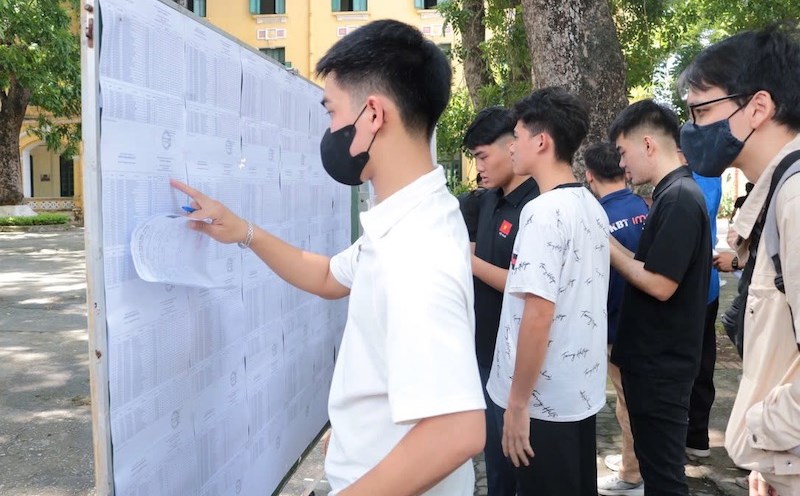Sad story on happy day
Ms. Nguyen Thi Thu - the character's name was requested to be changed (Phu Tho) - recently posted on her personal Facebook to warn her friends on social networks not to transfer money for her wedding to her sister's account.
Ms. Thu said that her sister's Facebook was taken over by a scammer. They then went to the Facebook accounts of Ms. Thu's supposed close friends to "demand wedding money."
"They knew I had just had a wedding and that some friends could not attend due to personal reasons. Instead of hacking my account, they hacked my sister's Facebook and texted me asking for wedding money while I was busy taking care of many other things," Ms. Thu said indignantly.
Because of timely discovery, only 6 friends were scammed of 500,000 VND/person; Ms. Thu had to sincerely apologize and agree to return the money to these people.
In addition to explaining to her friends, Ms. Thu immediately turned on the security lock on her personal Facebook to avoid leaking information about herself and her family.
Talking to Lao Dong, cyber security expert Ngo Minh Hieu said: There are many reasons leading to the disclosure of users' personal information. Some of the reasons can be mentioned as: Users lack awareness or do not respect personal information, easily share images, identity information on cyberspace...
Many social networking platforms have been hacked, such as Facebook, X (formerly Twitter)... in recent years, with tens of millions of Vietnamese users' information leaked. Next are the websites of schools and business organizations, which are also easily "invaded" by hackers due to poor security.
Leaked information can also be easily bought and sold on hacker forums or via Telegram. In addition, bad employees in organizations and businesses can also sell customer information to outside parties for personal gain, or be lured into buying personal identity information at low prices.
In addition, many users are also lured into black credit lending apps or fraudulent online investments. Then bad guys steal and sell or use for bad purposes, which is also one of the reasons why information leaks are increasing.
Responsibility to protect yourself
According to the cybersecurity expert, users can become targets of cyberattacks such as fraud, phishing, electronic extortion and unauthorized access to bank accounts or emails. This can cause financial damage and lost business opportunities.

Sensitive personal information such as ID number, social security number, credit card number, password... is exposed, others can use this information to impersonate or conduct criminal activities under the user's name.
This can have serious consequences such as losing their identity, losing money, getting caught up in black credit debt without their knowledge, or being held legally responsible for activities they did not undertake.
Sensitive personal information such as private photos, videos, etc., when leaked, can be shared publicly, leading to negative consequences for personal, professional or financial situations.
Therefore, experts emphasize that each individual needs to take responsibility for protecting their personal information. This includes using strong passwords, two-step security, or using third-party security software.
Never share personal information with untrustworthy people, regularly check and update privacy settings on online accounts, and increase your understanding of data protection risks and measures.











